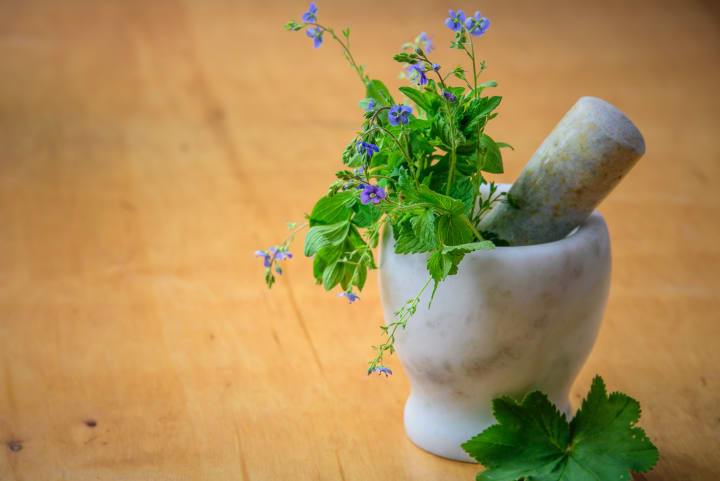
A medicinal herb is a plant or part of a plant that is used for its therapeutic or medicinal properties. These plants are typically valued for their ability to alleviate or treat various health conditions, either through their active chemical compounds or through other means, such as their anti-inflammatory or antioxidant properties. Medicinal herbs have been used for thousands of years in various traditional medicine systems, including Ayurvedic medicine, Chinese medicine, and Native American medicine, and continue to be used today in many parts of the world as alternative or complementary therapies. Examples of medicinal herbs include chamomile, echinacea, ginseng, and turmeric.
A medicinal herb is a plant that is used for its therapeutic properties. These plants have traditionally been used in various cultures for thousands of years to treat a variety of illnesses and ailments. Medicinal herbs can be used in various forms, such as teas, tinctures, capsules, or topical applications. They contain active compounds that can have a beneficial effect on the body, such as reducing inflammation, boosting the immune system, or improving digestion. Some well-known medicinal herbs include chamomile, echinacea, ginseng, peppermint, and turmeric. However, it is important to note that while medicinal herbs can have many benefits, they should always be used under the guidance of a qualified healthcare professional to ensure safe and effective use.
Benefits of medicinal herb
Medicinal herbs offer a wide range of potential health benefits, depending on the specific plant and its active compounds. Some common benefits of medicinal herbs include:
- Anti-inflammatory properties: Many herbs, such as ginger, turmeric, and garlic, contain compounds that can reduce inflammation in the body, potentially alleviating symptoms of conditions such as arthritis, asthma, and heart disease.
- Antioxidant properties: Several herbs, including green tea, rosemary, and ginkgo, are rich in antioxidants, which can help protect the body from damage caused by free radicals and potentially reduce the risk of chronic diseases such as cancer and Alzheimer's disease.
- Digestive benefits: Some herbs, such as peppermint and chamomile, can soothe digestive issues such as bloating, indigestion, and nausea.
- Pain relief: Certain herbs, such as willow bark and valerian, may have pain-relieving effects, potentially reducing discomfort associated with headaches, menstrual cramps, and other conditions.
- Immune system support: Many herbs, including echinacea and elderberry, are believed to help support the immune system, potentially reducing the risk of illness and infection.
It's important to note that while medicinal herbs can offer potential health benefits, they should not be used as a substitute for medical treatment. Always consult with a healthcare professional before using medicinal herbs, especially if you have a pre-existing health condition or are taking medications.

Medicinal herbs offer a wide range of potential benefits, including:
Relief of pain and inflammation: Many medicinal herbs, such as turmeric, ginger, and willow bark, have natural anti-inflammatory and pain-relieving properties that can help alleviate aches, pains, and swelling.
- Immune system support: Some herbs, such as echinacea and elderberry, have immune-boosting properties that can help to support the body's natural defenses against infections and illnesses.
- Digestive health: Certain herbs, such as peppermint and ginger, have been used for centuries to alleviate digestive issues like nausea, bloating, and stomach cramps.
- Stress and anxiety relief: Herbs like lavender and chamomile have calming properties that can help to promote relaxation and reduce stress and anxiety.
- Antioxidant properties: Many herbs, such as rosemary, thyme, and oregano, contain antioxidants that can help to protect the body against cellular damage caused by free radicals.
- Support for healthy skin: Some herbs, like aloe vera and calendula, have soothing and healing properties that can help to alleviate skin irritation, promote wound healing, and support healthy skin.
It's important to note that while medicinal herbs can offer many potential health benefits, they should always be used with caution and under the guidance of a healthcare professional, particularly if you are taking other medications or have underlying health conditions.
About the Creator
Enjoyed the story? Support the Creator.
Subscribe for free to receive all their stories in your feed. You could also pledge your support or give them a one-off tip, letting them know you appreciate their work.





Comments
Test is not accepting comments at the moment
Want to show your support? Send them a one-off tip.